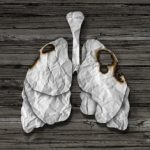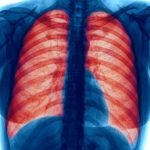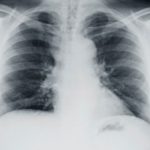 October 26 was Lung Health Day, but the entire last week of October is dedicated to respiratory care awareness. In light of this, we present our top stories discussing matters of the lungs including asthma, pneumonia, lung cancer, COPD, and cystic fibrosis.
October 26 was Lung Health Day, but the entire last week of October is dedicated to respiratory care awareness. In light of this, we present our top stories discussing matters of the lungs including asthma, pneumonia, lung cancer, COPD, and cystic fibrosis.
Our lungs help us breathe, but when they get sick, breathing can be challenging. It’s important that we take the necessary steps to protect our lungs, as many lung diseases can contribute to other health conditions, too.
Advertisement
Below you will find articles discussing prevention, treatment, and risk factors for various lung conditions.
Later-life asthma increases the risk of heart disease and stroke
Adult development of asthma has been linked to pose risks to the heart. The latest findings looked at nearly 1,300 adults who did not have heart disease at the beginning of the study.
Of the participants, 111 were diagnosed with asthma as adults and 55 were diagnosed with asthma as kids. The participants were tracked for 14 years.
The researchers found among those who were diagnosed with asthma as adults they had a 57 percent higher risk of heart disease, stroke, heart failure, angina, or heart-related death compared to those who did not develop asthma or those who were diagnosed as children. Continue reading…
 Preventing pneumonia in elderly: How to boost the immune system
Preventing pneumonia in elderly: How to boost the immune system
Pneumonia is a preventable condition, but you need a strong immune system to resist the infection. Pneumonia is inflammation of the lung tissue caused by a virus, bacteria, or fungus. It may be contagious if caused by an infectious microbe. But if it is caused by chemical fumes or other poisons, then it is not contagious.
As we age, the risk of pneumonia increases, because our immune system becomes weaker, so it is less successful in fighting off illness. Let’s examine the causes of pneumonia in the elderly and look at some ways to boost our immune system naturally to better prevent pneumonia. Continue reading…
 Higher risk of lung cancer among smokers diagnosed with pneumonia
Higher risk of lung cancer among smokers diagnosed with pneumonia
New research suggests smokers diagnosed with pneumonia should also be screened for lung cancer as a means to reduce mortality. The findings suggest that heavy smokers diagnosed with pneumonia are at a greater risk of lung cancer – a cancer with only a 27 percent survival rate. Screening should be done by chest-computer tomography.
Lead researcher, Daniel Shepshelovich, said, “Lung cancer is truly aggressive. The only chance of recuperation is if it’s caught before it begins to cause any symptoms at all. The idea is to find the tumor well in advance. Previous studies have shown that a low-dose radiation CT scan conducted once a year on heavy smokers has the potential to lower lung cancer mortality rates. But this requires huge resources, and we still don’t know how it will perform in real-world conditions, outside of strictly conducted clinical trials. We want to develop a more realistic and cost-effective strategy targeting a particularly high-risk population.” Continue reading…
 In COPD patients, pneumonia survival in hospitals improved with inhaled corticosteroids: Study
In COPD patients, pneumonia survival in hospitals improved with inhaled corticosteroids: Study
In COPD patients, pneumonia survival in hospitals is improved with inhaled corticosteroid treatment. The findings of the study uncovered that lower in-hospital mortality was seen in chronic obstructive pulmonary disease (COPD) patients who received a combination of long-acting inhaled bronchodilators (IBD) therapy and corticosteroids, compared to patients on IBD alone.
Inhaled corticosteroids – although effective for COPD management – have been associated with adverse side effects such as increasing the risk of pneumonia.
The study was based on the records from 1,165 hospitals extracted from a Japanese database.
The researchers identified 7,033 eligible COPD patients admitted with pneumonia. They divided the participants into two groups: patients taking inhaled corticosteroids with IBD therapy, and patients on IBDs only. Continue reading…
 In cystic fibrosis patients, lung infection can be caused by bacterial infection
In cystic fibrosis patients, lung infection can be caused by bacterial infection
Advertisement
In cystic fibrosis patients, lung infection can be caused by bacterial infection. The bacterial infection can affect anyone, though it’s virtually harmless in the general population. But now researchers are closer to understanding why it poses a higher risk in cystic fibrosis patients.
Known as Burkholderia cenocepacia, the bacterium is resistant to nearly all known antibiotics and can contribute to lung infection in cystic fibrosis patients. Cystic fibrosis (CF) is a condition that causes a buildup of mucus in lungs – as well as other parts of the body – making it difficult for a person to breathe. Lung infection is responsible for nearly 85 percent of deaths in cystic fibrosis.
Researchers from Ohio State University found that B. cenocepacia interferes with an important survival process in cells that are responsible to fight off infection. The process is stronger in cystic fibrosis patients, leading to more serious complications. Continue reading…
